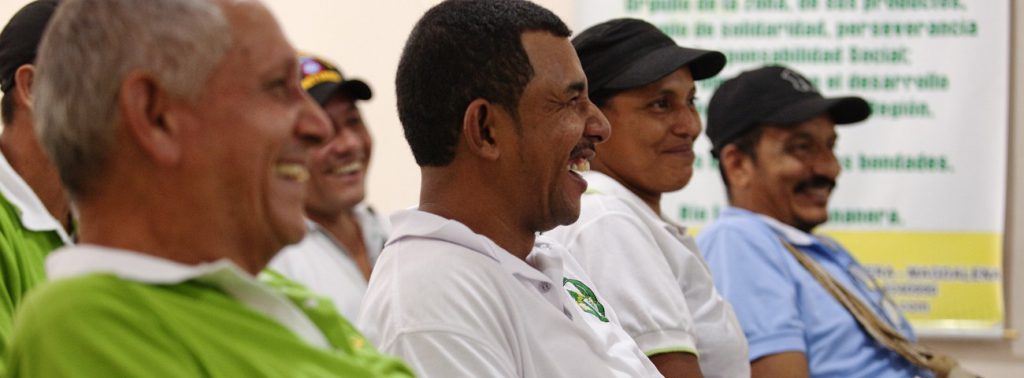A ‘Theory of Change’ describes the change that an initiative (organisation, network, project, etc.) wishes to see in the world and its understanding of how it will contribute to that change.
A MEL programme should be situated within and guided by a conceptual framework that explains what an organisation’s vision for change is, and how its activities and interventions contribute to that change. This is often referred to as a ‘Theory of Change’.
A Theory of Change describes the change that an initiative (organisation, network, project, etc.) wishes to see in the world and its understanding of how it will contribute to that change.
Fairtrade International has developed a Theory of Change for Fairtrade as part of work to improve the Fairtrade Monitoring, Evaluation and Learning (MEL) system. The Theory of Change captures the range of things Fairtrade does as a system (i.e. its interventions) and relates these logically to desired immediate, mid-term and long-term changes.
The Fairtrade Theory of Change was developed between 2011 and 2013, including an extensive process of involvement of stakeholders in general. Workshops were conducted with producer organisations around the world to understand what changes they experience, what is important to them and what they see as Fairtrade’s role in delivering these goals. Results from this process were presented at the ISEAL conference in June 2013.
Principles guiding Fairtrade’s MEL programme
- Evidence: to build a sound body of evidence about the results of Fairtrade’s interventions in bringing change based on our Theory of Change.
- Global Scope: to put in place a clear framework for monitoring and evaluating Fairtrade’s impact globally and ensure that research from specific regions can contribute to global understanding and vice versa
- Coordinated Methodology: to ensure that all monitoring, evaluation and impact assessment follows key methodological principles and incorporates select core indicators to ensure consistency and build baseline data to analyse trends
- Learning: to provide the necessary data and analysis needed to build an evidence-based learning system that guides internal decision-making, strategy and continuous improvement
- Access: to ensure that all system members (including producer networks, national Fairtrade organisations) can access and analyse key data based on their needs
- Resource optimisation: to ensure best value of monitoring and evaluation efforts by building on structures and tools that we already have, reducing duplication, maximising the learning value of existing activities such as audit and producer support, and enhancing co-ordination and consistency.
- Dissemination: to ensure that the results of monitoring and evaluation processes are effectively communicated and disseminated internally and externally in collaboration with other teams and system actors.
- Accountability: to support the Fairtrade system in being more accountable to all its members, participating producers and their organisations, campaigners and supporters, businesses and donors.
- Optimise producer benefit: to be efficient in MEL work so as to reduce the time and burden placed on individual farmers, workers and staff within producer organisations. To ensure that producers have access to their own monitoring data, and to support better data management, analysis, and learning at the level of producer organisations.
